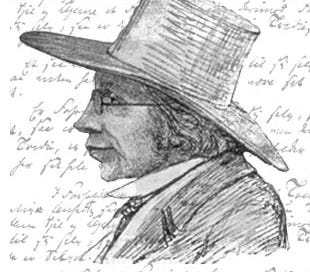The following passage from Concluding Unscientific Postscript embodies a penetrating insight:
. . . the legal authority shows its impotence precisely when it shows its power: its power by giving permission, its impotence by not being able to make it permissible. (p. 460, tr. Swenson and Lowrie)
My permitting you to do X does not make X permissible. My forbidding you to do X does not make X impermissible. My permitting (forbidding) is justified only if what I permit (forbid) is in itself permissible (impermissible). And the same goes for any finite agent or collection of finite agents. A finite agent may have the power to permit and forbid, but it cannot have the power to make permissible or impermissible. Finite agency, then, betrays its impotence in exercising its power.
For example, the moral permissibility of killing in self-defense is what it is independently of the State's power to permit or forbid the act via its laws. The State cannot make morally permissible what is morally permissible by passing and enforcing laws that permit it. Nor can the State make morally impermissible what is morally permissible by passing and enforcing laws that proscribe it.
Here below Might and Right fall asunder: the powerful are only sometimes just, and the just are only sometimes powerful. But it would be a mistake to think that the mighty cannot be right, or that the right cannot be mighty. The falling asunder is consistent with a certain amount of overlap. But even when Might and Right overlap, the former does not make the latter.
Power does not confer moral justification, but neither does impotence. (For example, the relative weakness of the Palestinians relative to the Israelis does not confer justification on the Palestinian cause or its methods.) See The Converse Callicles Principle: Weakness Does Not Justify.
The State is practically necessary and morally justifiable. Or so I would argue against anarchists. But fear of the State is rational: its power is awesome and sometimes misused. This is why the State's power must be hedged round with limits.
We don't know whether God exists. But we do know that nothing is worthy of being called God unless it is the perfect harmonization and coalescence of Might and Right, of Power and Justice, of Will and Reason. That coalescence is built into the concept of God, whether or not anything in reality answers to the concept. That power as such is good is reflected in the fact that omnipotence is counted among the divine attributes. It is the misuse of power here below that is evil, not power itself.
The Left’s “Speak truth to power!” which leftists conveniently forget when they are in power, is based on the false assumption that power itself is something evil.
One may also reasonably question Lord Acton’s “Power corrupts; absolute power corrupts absolutely.” It is not power or the exercise of power that corrupts us; it is we who, being morally corrupt, misuse power for our evil ends. If power corrupts, then the all-powerful God is all-corrupt. Acton’s saying also implies that the greater the power an agent possesses, the greater his corruption. If that were right, then the less power an agent possesses, the greater his goodness or virtue. And that, I submit, makes no sense. There is no virtue in weakness. A good person is not a weak person, but a strong person who is the moral master of his power.




